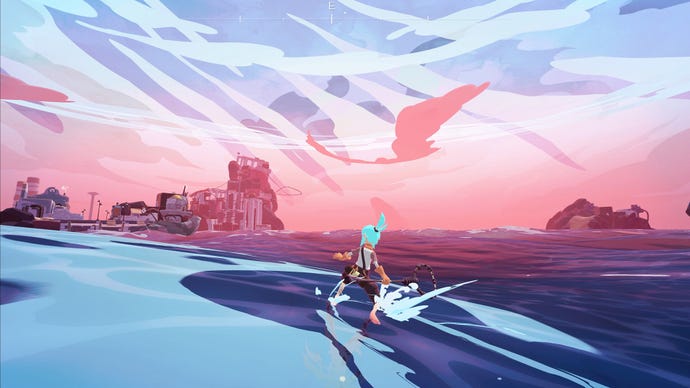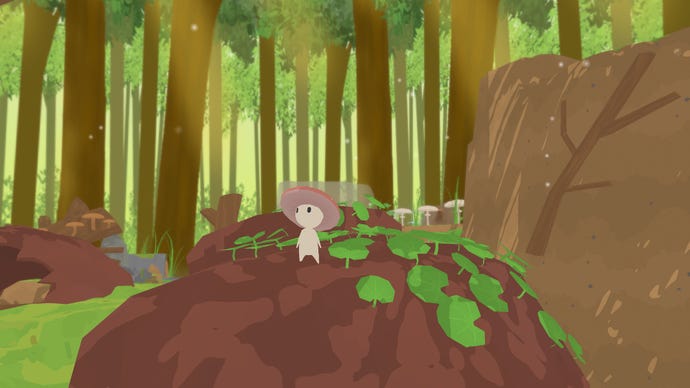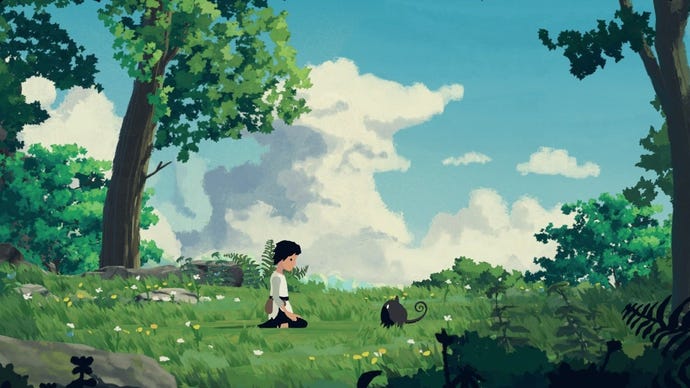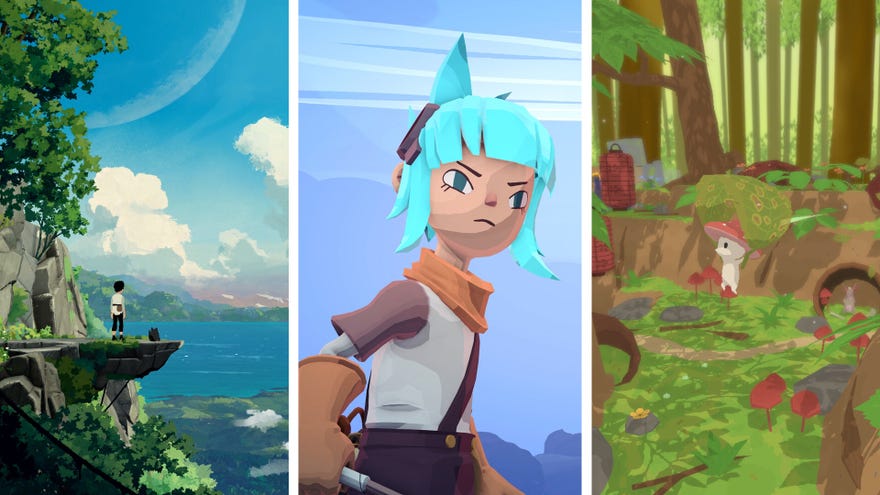The RPS Selection Box: James’ bonus games of the year 2023
More top games that SOME PEOPLE didn’t vote into the Advent Calendar
I’m going to level with you, readers. Probably something like 70% of my 2023 games time was spent on precisely two co-op shooters, neither of which I’ve written about much, nor were new enough to be eligible for the most recent Advent Calendar. I apparently have a type. I’m sorry.
Still, while the man’s rules prevent me from recommending Deep Rock Galactic or Darktide, I do have a few picks that fell short of full Advent Calendar glory. And they’re all... colourful, quite short indie platformers? Hmm, maybe I have two types.
Wavetale

I reckon I can just about squeeze in Wavetale, given its mid-December 2022 launch put it just beyond the reaches of last year’s calendar. More importantly, it’s a love little adventure, this – part mid-2000 platformer, part open-world surfer, and utterly rich with the kind of folksy charm that can make a post-cataclysm drowned Earth seem like a pleasant place to be.
The actual jumping, battling, and pickup-collecting is concentrated on and around a few surviving islands, though it’s how you get between them that produces the most ocean-going gratification. Within the space of one tutorial, you end up bonded with a ghostly fishperson, who hangs around your feet whenever you step into the sea – granting both waterwalking and speedy surfing powers. Gliding over the waves is a smooth, slick pleasure in itself, and once you learn to chain in charged-up jumps and grappling hook shots on overhanging scenery, inter-mission commutes become spectacularly nimble stunt runs. All to a cleverly dynamic music score that subtly swells up or winds down, depending on how fast you’re whooshing about.
The Windows release is its own feelgood story, too. Wavetale was originally a Stadia exclusive, seemingly doomed to go down with Google’s game streaming ship, only to find safety and shelter on PC (and the Switch, if we’re being factual). I’m mighty glad it did.
Smushi Come Home

My other favourite shadowdrop of 2023, besides Hi-Fi Rush. Smushi Come Home is a kindhearted and easygoing exploration-platformer that never abandons its cosy tone, despite opening on you being mushroom-napped by a passing bird. You are Smushi, after all, and you need to come home.
It just so happens that the way back to your toadstool pals is filled with helpful critters, most of whom speak with the same staccato, punctuation-light style that you probably use when WhatsApping your friends. There are strong A Short Hike vibes at play here, though Smushi Comes Home does its own thing as well: instead of a ASH’s single, densely-layered setting, for instance, there are multiple sprawling biomes, starting with a forest of towering trees and ending on a gigantic lake. Gigantic by Smushi scale, at least. You get a bit more involved in the lives of your helpers, too, up to and including the reconciliation of a family of capybaras, one of which lets you hitch a ride on his head like a fluffy, sleepy-looking yacht. I played most of this on a plane, and had to avoid audibly awwww-ing.
Like all the best exploration games, Smushi Come Home also makes sure that wandering is always rewarded. Sometimes it might just be a handful of collectibles, sometimes it might be a piece of progression-critical climbing gear, but no matter where you go, you’re pretty much guaranteed to find something there. The result: as chill as this adventure is, it never, ever wastes your time.
Planet of Lana

Planet of Lana is a sidescrolling, story-heavy puzzle-platformer of the sort that I sometimes struggle with. I can appreciate the artistry of a Limbo or an Inside well enough, but manhandling their actual puzzle solutions into place is usually such a slow process that I end up resenting tham as roadblocks on an otherwise interesting journey.
I maaaaaaay have consulted a guide for one or two such moments in Planet of Lana, but otherwise, it has an ingenious solution to puzzle fatigue: Mui. Mui is an unbearably adorable monkey-cat creature that you befriend (and, in my mind, legally adopt) early on, and the vast majority of subsequent conundrums and stealth encounters involve directing both they and Lana around simultaneously. Rather than simply complicate things, this serves to make each challenge deeper and more engaging; beating them is like pulling off a tightly choreographed dance routine, which is far more satisfying than mere manual crate-pushing labour.
It's also absolutely chuffing gorgeous, borrowing just enough painterly wonder from Studio Ghibli’s works without copying it brush for brush. I played Planet of Lana entirely on a Steam Deck OLED, and I’m fairly sure I saw more colours on that 7in screen than I have in a whole year of playing on my big LCD monitor.









